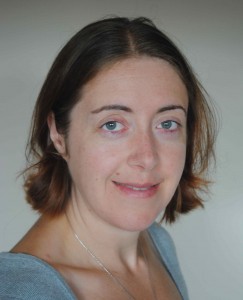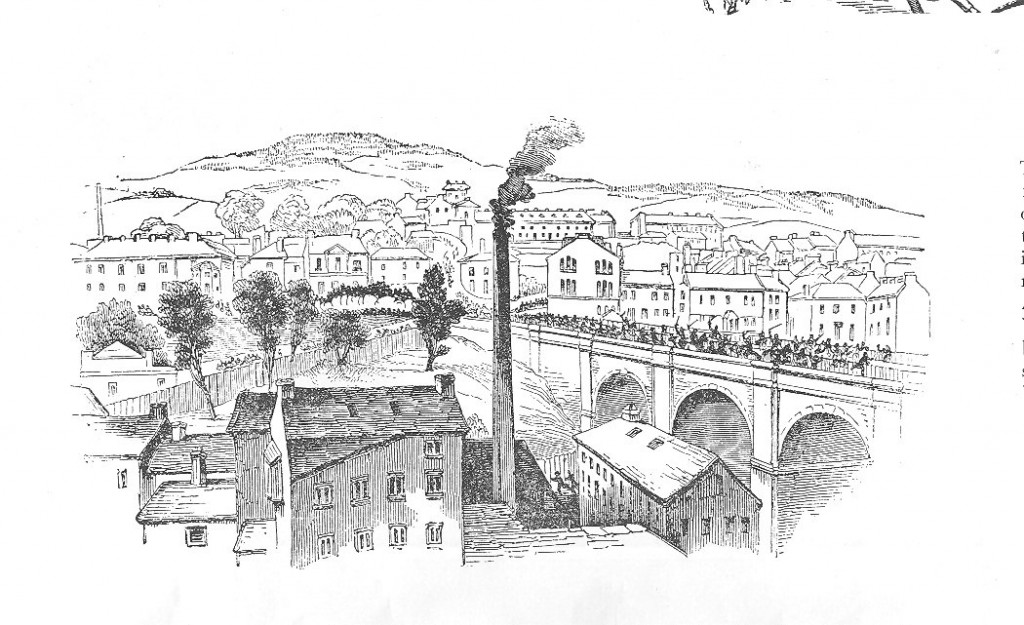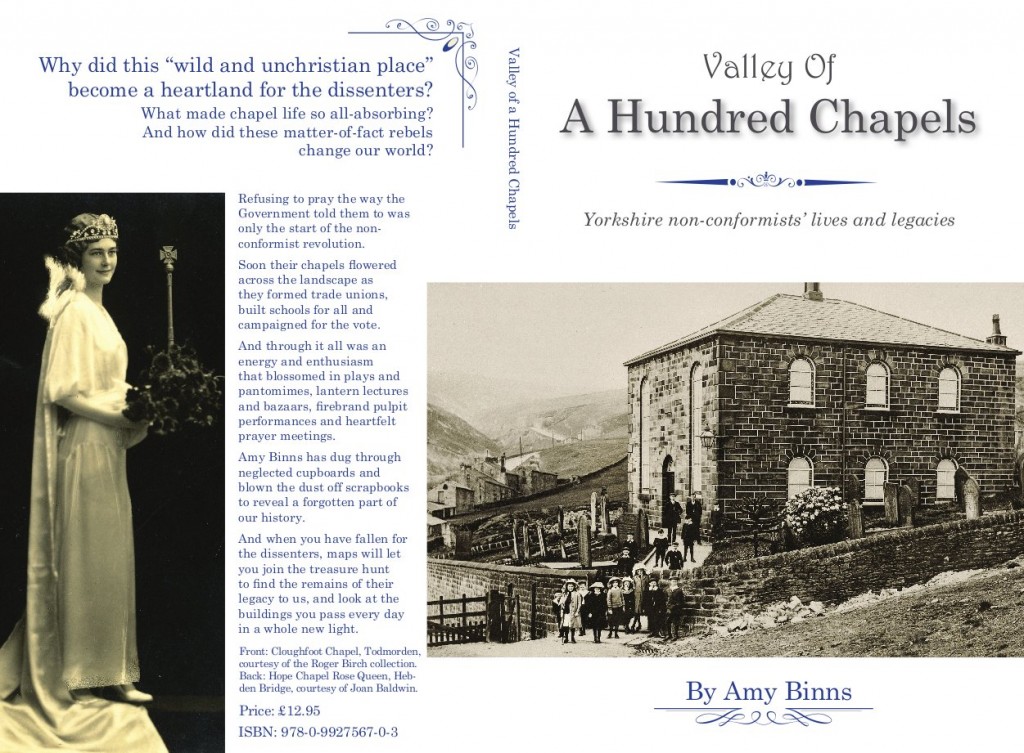Heptonstall writer and journalism lecturer Amy Binns has just published Valley of a Hundred Chapels. This local history reveals how centuries of interwoven religious and political dissent sprang from people’s refusal to worship in the way the government told them to.
In her introductory chapter, Amy suggests,
“Perhaps it’s not surprising that the people who refused to worship the way the Government told them to should also refuse to submit to the rest of its pronouncements.
Unbowed by poverty and ignorance, the very formation of the chapels had been a political act. Those who can read, can organise: the Sunday schools were a weapon in the fight for fair wages, better working conditions, and, above all, the vote. Now able to read the Bible for themselves, they found plenty in it to support their cause. Their political and religious lives were inextricably linked.”
Amy was inspired to start finding out about the history of local chapels because she lives close to the Heptonstall chapel. Amy said,
“This is just such a lovely, friendy, well-cared-for building. It’s their 250th anniversary next year and so I offered to put together a little exhibition for them. The more I heard about them, the more interested I became, and it just grew into a book.”
A working class hero is something to be
The history portrays some vivid, exuberant characters who were central to the organisation of political and religious dissent in the Upper Calder Valley. Ben Rushton, an Ovenden fancy worsted weaver, Chartist agitator and lay preacher, was an outstanding figure in the Chartist fight for votes for all men. (Women were another question.) His fame extended well beyond the Upper Calder Valley. Karl Marx reported on his funeral, attended by over 6,000 people, in his bulletin in the New York Daily Tribune.
In the remoter areas of the Upper Calder Valley, Ben Rushton tramped many miles every night to speak with struggling Chartist branches. Rushton’s clogs were worn through to the sock, but the old man wasn’t bothered. “Think of the reward hereafter,” was his view.
In 1842, Ben Rushton was arrested during the “Plug Riots”, when the demonstrators pulled out the plugs of the factory boilers so they couldn’t get up steam. More than 20,000 people, some barefoot, marched through the valley to Halifax to demonstrate for the right to vote. The Riot Act was read twice, and many, including Mr Rushton, were sent to York magistrates and so to prison.
The Ladies of Roomfield Chapel and their very forthright songs
I asked Amy if she had any favourite characters, episodes and eras in her history of the UCV chapels.
“I do love the ladies of Roomfield chapel and their very forthright songs, and Grace Cockcroft’s Pageant of Noble Women really impressed me too. The movement has been different things in different eras, but I don’t really have a favourite. I suppose the Sunday School movement is the most interesting to me.”
The chapter Finding their voices: Women in chapel life details men’s domination of official Chapel life. It also relishes Chapel women’s challenges to this dominance- usually through mocking live entertainments.
On August 2, 1932, Grace Cockcroft ripped some used pages out of her shorthand exercise book and started planning her “Pageant of Noble Women”, for performance at Birchcliffe Baptist Chapel.
Amy had a good look at Grace Cockcroft’s cast list for the Pageant, in her notes which are preserved in the West Yorkshire Archive Service. Amy writes in the chapter Finding their voices:
“It’s worth noting that, in contrast to most of today’s power lists, there is not a single entertainer of any kind, with the possible exception of Charlotte Bronte, who comes under the heading “Emancipators of Women”. The only other novelist is Harriet Beecherstow, who really wrote as a way of promoting the abolition of slavery.
Many are campaigners for women’s rights, though the Pankhursts have been snubbed even though they had visited Hebden Bridge (at the time, many considered their methods too violent). Not one has been included for her beauty or wealth, the only possible touch of self-indulgence coming from poet Elizabeth Browning.“
Chapel women seem to have been big on live entertainment. The ladies of Roomfield chapel wrote and performed an acid attack on the men’s “Pleasant Sunday Afternoons” mutual improvement society. As Amy writes,
“Who wouldn’t want to have been there when they launched into their chorus of disapproval at the men’s failure to manage Sunday School classes, refusal to invite lasses to their events and pathetic budgeting? Did the men squirm in their seats, or grin and bear it?”
The past speaks to the present
So, does Amy think this this history speaks to the present moment in the Upper Calder Valley? Amy said,
“That spirit of independent thought and action, getting it done rather than waiting for someone else in authority to do it, still speaks to us now, and is a really important lesson for us. Today, so many chapels close that it can feel like the movement was a failure, but when you understand the huge legacy of rights and social and political change, you can see how the way they acted was a huge success.”
I put it to Amy that there is some debate about whether or not the non-conformist chapels co-opted and tamed 19th century radical working class political movements, such as Chartism. I asked her where she stands in that debate. Amy said,
“The movement certainly changed over time. Anything new is always started by people who are passionate about a cause, they are the drivers for change and only a minority of unusual people are like that. Over time, the movement became massively popular, and so inevitably became more mainstream and less dominated by passionate individuals. I don’t think this means it was “de-fanged”, it just grew into something else.”
And what would Grace Cockcroft, Ben Rushton and the Plug Rioters would be doing if they were living in the Upper Calder Valley today? Amy said,
“Grace Cockcroft was an organiser and an artist, I’m sure she would have been very welcome on the committee of the Trades Club! She also had plenty to say, so maybe she would have been all over the hebweb too, if she wasn’t running her own blog. Ben Rushton I’m not so sure about, although we know much more about him. Fifty years ago he would have been a trade unionist and maybe a Labour MP. Now I think he might be more interested in the Third World, perhaps deeply involved with the Hope Project in Kerala which a lot of local people support.”
Where to buy the book
Valley of a Hundred Chapels: Yorkshire Nonconformists’ Lives and Legacies by Amy Binns is available from the following places:
Todmorden: Border Books, Todmorden Information Centre, Cryers, Gordon Riggs,
Hebden Bridge: Oasis News, The Bookcase, Hebden Bridge Visitor Centre
Halifax: WH Smith, Bankfield Museum, Shibden Hall
The book is also on Amazon, but Plain Speaker isn’t giving the link because of the shocking working conditions for Amazon warehouse employees. See BBC Panorama programme.



